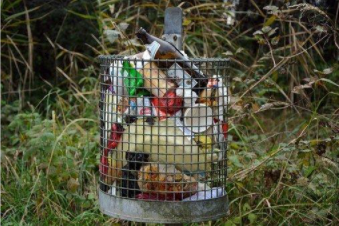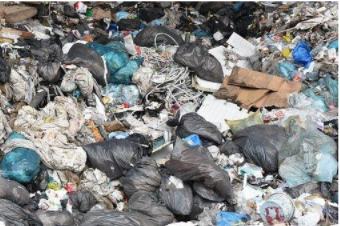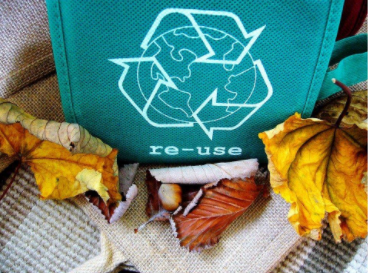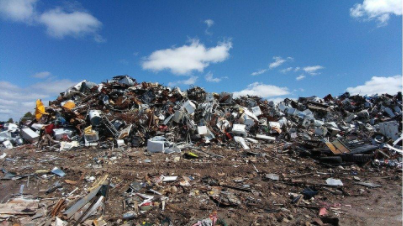What is ecology?
Ecology is a science that studies the interaction of organisms and their environment . The object of her research are ecosystems, life in terrestrial, aquatic, soil and organic environments.
In recent years, the term ecology has become increasingly associated with nature conservation, bioequilibrium restoration, the effects of pollution and climate change on Earth.
A major part of the focus of ecology are also the challenges facing the world due to huge amounts of waste , which are generated daily by people and their activities.
Therefore, the main goal for experts dealing with modern environmental issues is to preserve the biological diversity of the planet.

Waste management – nature and significance
Our environment more and more bears the imprint of human activity, which has and negative impact on quality of life. This is mainly due to the ubiquitous pollution and the harmful effects on humans and other organisms on the planet.
Realizing the need to preserve biosystems and preserve the health of the population, humanity is looking for optimal solutions to deal with eco-crises. Increasingly tangible climate change and information on endangered species are also alarming.
All this predetermines the importance of the process, which is related to the care for the purity of nature, by controlling the dangerous consequences of the release of unnecessary products, objects and substances.
Waste management is related to the rules and ways to minimize their harmful effects. Because on the one hand, overcoming the problems with the accumulation of huge amounts of garbage is important so that they do not become a serious threat to nature and living organisms , and on the other hand, recycling has significant benefits for the global economy.
The explanation is that the processing and reuse of objects and substances in production activity, helps to save depleting natural resources.
Waste management is a wide-ranging activity that involves a series of important steps – from the creation, through the collection, transportation, disposal, recycling, destruction or reuse of waste. Depending on the type of waste, a number of rules apply to the safety of the environment and the population.

Sustainability of waste management is about achieving the main goals of the process – maximum recycling or storage in the most gentle way possible for air, soil, water resources, plants and organisms. The other priority is climate change as a result of human pollution.
All this predetermines the global nature of the problem and the urgent need to ubiquitously stimulate the reduction of waste dumped from households, industry, construction and all other human activities.
In Bulgaria The Law on Waste Management regulates the ecological course of all processes . The legal framework describes the obligations, rights, various activities, decisions and their control.
The law also regulates the requirements for those products that are separated as waste in the process or are its final form, regardless of the nature of the activity.
The documentation specifies the criteria that are leading in determining the type of waste and whether they are dangerous or widespread.
The specialized legislation is designed with the main purpose to completely eliminate or minimize harm from the impact of garbage on human health as well as on the bioequilibrium of the environment.
What is environmental management?
Environmental management is one of the main concepts when it comes to regulation in terms of nature conservation. For this purpose, the European Commission has adopted the so-called. Eco – management and audit scheme / EMAS /. Its role is to assist organizations in their efforts to protect the Earth.

Thanks to the development of technology hazardous and mass objects and substances are subject to recycling , although there is still no possibility of ubiquitous recycling. The process requires rules for separation, transportation, processing, storage and all stages from the garbage to its “new life”.
Stages are part of waste management, and with the growing need for disposal and recycling of unnecessary items and substances, the more it grows and the need for specialized companies.
They have a set of specialists to organize the whole complex process and to support households and businesses to comply with the regulatory framework. Environmental experts know in detail the regulations and methods of control.
The role of professional consultants in the field of ecology is to provide their expertise with advice and organization of waste management processes.
There are external consultants who are hired by companies to:
- provide legal and technical assistance
- prepare the necessary documentation
- are responsible, if necessary, for the collection, transport, recycling, re-use in new waste generation, etc.
Companies in this industry have the ability to classify and characterize the type of items and substances available. They have practical experience in the field of ecology and can provide a wide range of services, such as environmental impact assessment environment, for example.

Benefits of garbage collection
The huge benefits of recycling are undeniable. The point is that some of the hazardous waste cannot be reinvested in activities. In addition, its storage poses huge risks and this needs to happen in licensed landfills.
When stored safely, environmental friendliness is guaranteed. Therefore, this waste should not be mixed with other waste due to the likely possibility of causing a chemical reaction in which to separate harmful substances.
Controlled incineration of certain waste is often applied, as long as they are not flammable and do not emit harmful emissions during combustion. This is done in specialized cameras.
For example, pesticides and fertilizers are extremely dangerous to nature, animals and humans. In contact with soil they can destroy the microflora. Such preparations have a special storage regime, so as not to cause a negative effect.
Hazardous and radioactive waste requires the most attention. They are objects or substances that are poisonous or have other harmful characteristics. Management includes special measures, not only according to national laws but also international regulatory documents.
The source of such garbage can be households, offices, public and industrial activities. Hazardous waste is disposed of complex and requires specialized equipment, transport, landfills, personnel, etc. They can also be stored in specialized databases before they can be disposed of.
Thanks to the development of modern technologies part of the risky garbage is also subject to recycling , it is even possible in certain cases to find a new application after it has been disposed of.
In certain situations, waste must be transported outside a country, to be stored abroad.
Photos: Pixabay
